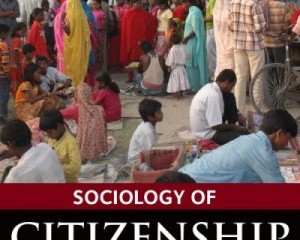
Experimenting with citizens’ assemblies in the UK
In October and November, two citizens’ assemblies will be taking place in Sheffield and Southampton. Organised by a coalition of academics and civil society organisations under the banner Democracy Matters, Assembly North and Assembly South represent significant interventions in contemporary British politics. First, the assemblies will be dealing with a fundamental constitutional question: how should we be governed? The main focus of the assemblies will be devolution and decentralisation of power to English regions. The Devolution Deals that are current government policy are piecemeal reforms. And as the term ‘Deal’ suggests, they are stitched together by local and national elites: citizens have had no say in how they should be governed. Following the much publicised Devolution Deal for Greater Manchester, …

So, what was Magna Carta?
This year, we celebrate the eight-hundredth anniversary of one of the most revered documents in English history. On 15 June 1215 at Runnymede (a small meadow outside of London, marking the midpoint between two armies locked in civil war) King John set his seal on Magna Carta – the ‘great charter’ that has become synonymous throughout the world with opposition to arbitrary rule, and with the protection of individual rights and liberties. But what, exactly, was Magna Carta? Few of John’s contemporaries could have guessed at its enduring and universal significance. Magna Carta was the product of a specific breakdown in feudal authority. It was a peace treaty and a political settlement, aimed at bringing to an end months of …

Would leaving the EU reduce immigration to the UK?
Migration and free movement are among the top questions in the debate about the UK’s relationship with Europe and the approaching membership referendum. In a country where most migration has traditionally come from outside Europe, EU migration now makes up almost half of non-British immigration to the UK. Following five years of policies designed to reduce immigration, quarterly statistics released at the end of August showed net migration reaching the highest level on record, taking the government ever further from its goal of reducing net flows “from the hundreds of thousands to the tens of thousands.” The combination of renewed debate about EU membership and the difficulty reducing UK immigration have led to discussion about whether leaving the EU will reduce …

Wake Up Europe! Why Britain should stay engaged and transform the EU
Wake Up Europe! Why Britain should stay engaged and transform the EU
Play Episode
Pause Episode
Mute/Unmute Episode
Rewind 10 Seconds
1x
Fast Forward 30 seconds
00:00
/
Subscribe
Share
RSS Feed
Share
Link
Embed
Download file | Play in new windowThe UK has a crucial role to play in the debate over how the EU should be reformed. This session engages in a conversation as to why and how.

Democracy, Development and Income Distribution
A Review of Inequality and Democratization: An Elite-Competition Approach, by Ben Ansell and David Samuels In this dense and absorbing review, Professor Ben Ansell explains how past and current models have failed to capture the paradox that development may lead to greater income inequality. He explores the roles of actors and structures in his own approach to the study of this relationship and casts a critical light on the plight of those who live in poverty despite democratization. Turning to the other end of the income spectrum, he discusses the global trend towards capital mobility and how it relates and affects different political systems. Overall, Inequality and Democratization raises a number of critical and highly relevant questions concerning the relationship between …

The Democracy Commission: practically teaching democracy
The institutions, technologies and practices of British democracy are, for the most part, inventions from before the time of universal suffrage. In the fluidity and fracture of the 21st century, it is clear this democratic inheritance has become increasingly inadequate. Sharp, sustained differences in participation and voice by age, class, ethnicity and region have become entrenched. Politics has professionalised, class identities have weakened, and political parties have drifted from their anchors in civil society, left ‘ruling the void’. Reinforcing the post-democratic drift, the evolution of the UK’s political economy has shrunk the potential scope for and influence of collective political action and democratic participation. The general election clarified our evolution towards a divided democracy. As IPPR’s new report into political inequality shows, less …

Book Review: ‘Patronage as Politics in South Asia’ by Anastasia Piliavsky (ed.)
In March, Uday Chandra of the Max Planck Institute reviewed ‘Patronage in Politics in South Asia’ for our Migration and Citizenship. In this post, I want to respond with my own analysis of the book’s arguments. It is true, as Anastasia Piliavsky points out in her superb introduction, that patronage has long been treated as a distasteful element of developing societies. Personalised exchange between social unequals has been viewed as either a perversion of liberalism’s central tenets of equality and freedom of choice or as a screen concealing exploitation. Quid pro quo electoral exchanges, in which votes are bartered for particular services rendered, are considered ‘bad’ democratic practice. And of course, the use of public power for private gain is unequivocally condemned as corruption. It …

Iceland’s unfinished revolution? An interview with Hordur Torfason
In this Q&A, I discuss the prospects for ‘unfreezing’ the draft new constitution with Hordur Torfason, the award-winning human rights activist credited with starting Iceland’s ‘pots and pans revolution’. You’re credited as the person who started the “pots and pans revolution” in Iceland. How did the protests start? I’m 70 years old this year. I started becoming an activist around 20 years old. Not that I wanted to become an activist, not at all. But I’m gay and it tells you a story that I’m the first gay man in the history of Iceland who steps forward. When I was 30 years old I was very famous. Everybody knew my song. I was on television, radio, doing concerts, LPs. I was …









